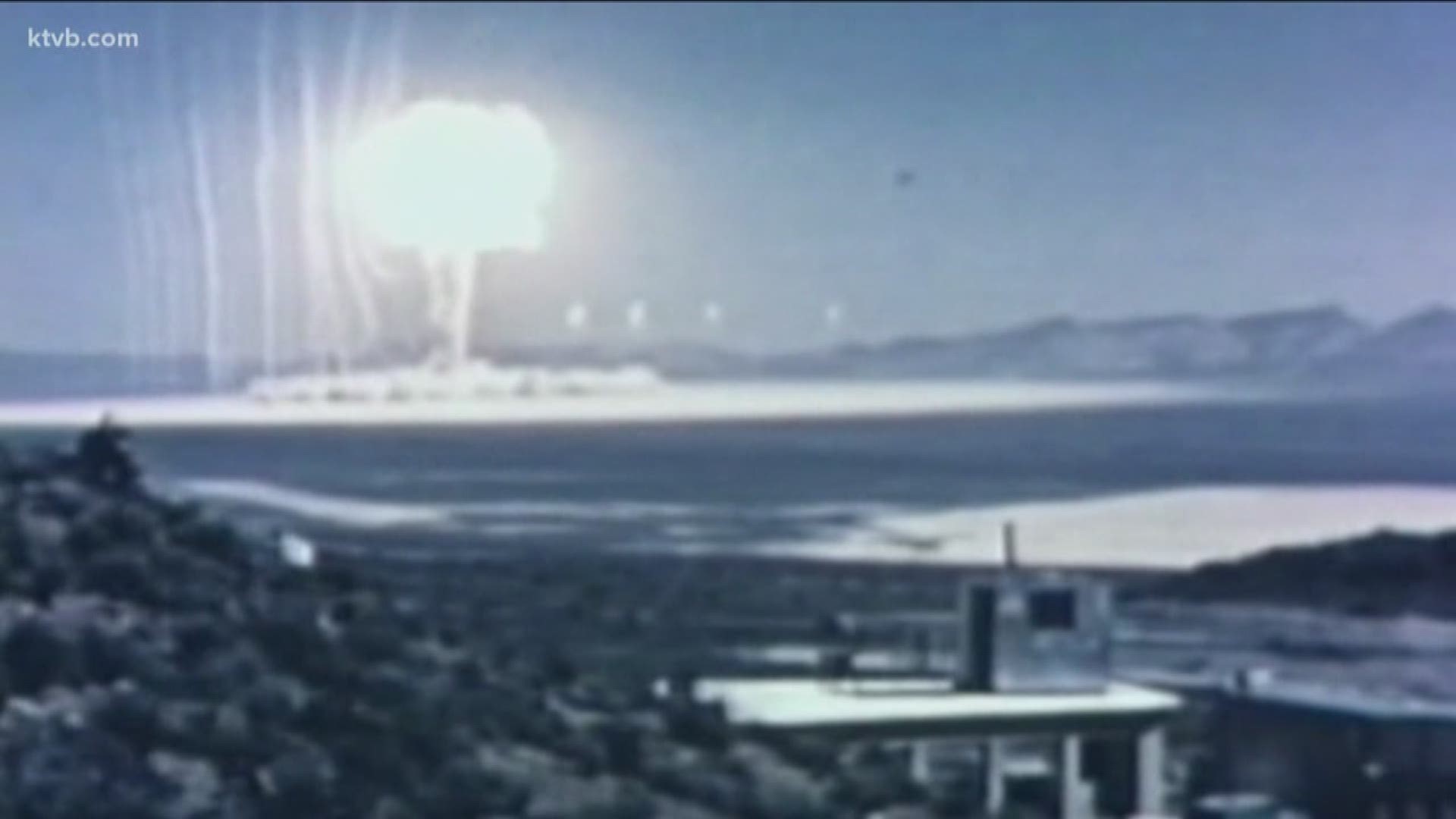BOISE, Idaho — Atmospheric nuclear weapons testing exposed more states and more people to radiation fallout and resulting cancers and other diseases than the federal government currently recognizes, Western governors said.
The Western Governors' Association on Friday sent letters to the U.S. Senate and U.S. House urging passage of proposed changes to a law involving "downwinders."
The U.S. between 1945 and 1992 conducted more than 1,000 nuclear weapons tests, nearly 200 in the atmosphere. Most were conducted in Western states or islands in the Pacific Ocean.
The new legislation, called the Radiation Exposure Compensation Act Amendments of 2019, was first introduced by Idaho Sen. Mike Crapo in 2018, then reintroduced again in March of this year. Crapo for years has sought the inclusion of Idaho as a downwind state.
If passed, those changes would add all of Nevada, Arizona and Utah, and include for the first time downwinders in Colorado, Idaho, Montana, New Mexico and the island territory of Guam.
The changes would also include increasing the maximum payment to $150,000 for someone filing a claim. Compensation currently ranges from lump sums of $100,000 for uranium workers to $50,000 for those who lived downwind of the Nevada Test Site.
Tona Henderson is the director of Idaho Downwinders, which for years has sought the inclusion of Idaho in the compensation program. She's thrilled the governors are taking a step to try and help pass the legislation.
“This is definitely a step in the right direction with this letter from western governors and I’m really appreciative of their work for us,” she said.
Henderson believes this issue affects many Idahoans - as well as others across the western states.
“It doesn’t matter where you go in Idaho, it seems to be the same stories and some of these families, all of them are gone,” she said.
38 of Henderson's own family members were affected by the radiation fallout, and 14 of them died of cancer.
During the nuclear testing, farmers would go out to their fields on summer mornings to find them covered with dust carried on the wind from the nuclear blasts, she said. The dust occurred so often, she said, it picked up the name "summer frost."
"I don't know why we weren't included," said Henderson, who was an infant growing up on her parents' dairy farm during the tail end of the atmospheric testing in the early 1960s. "Other than the government didn't want to admit that they did something wrong."
Trevor Schaefer is the founder of Trevor's Law, which seeks federal protections from environmentally-caused illnesses like cancer. He has been an advocate for Idaho Downwinders and worked with the organization for several years.
He said he knows firsthand how hard it can be to get congressional or government backing so any support is a positive step forward.
“It’s important because [the governors are] in the government right? So they can make a difference and they have a very powerful voice in that, so for them to recognize this is huge," he said.
KTVB reached out Sen. Crapo for comment and received this statement: “My current expansion bill, S. 947, would make residents in Idaho, Arizona, Colorado, Montana, Nevada, New Mexico, Utah and Guam eligible for medical benefits and other compensation if they can show they were harmed by the testing more than 50 years ago. Tragically, for some it is already too late.”
A representative from Crapo's office said he is working to gain more support for the bill. So far, nine senators have signed on.
The Radiation Exposure Compensation Act was first passed in 1990 as an alternative to costly litigation to ensure the federal government met its financial responsibilities to workers who became sick as a result of the radiation hazards of their jobs.
Read the full letter from the Western Governor's Association below.

